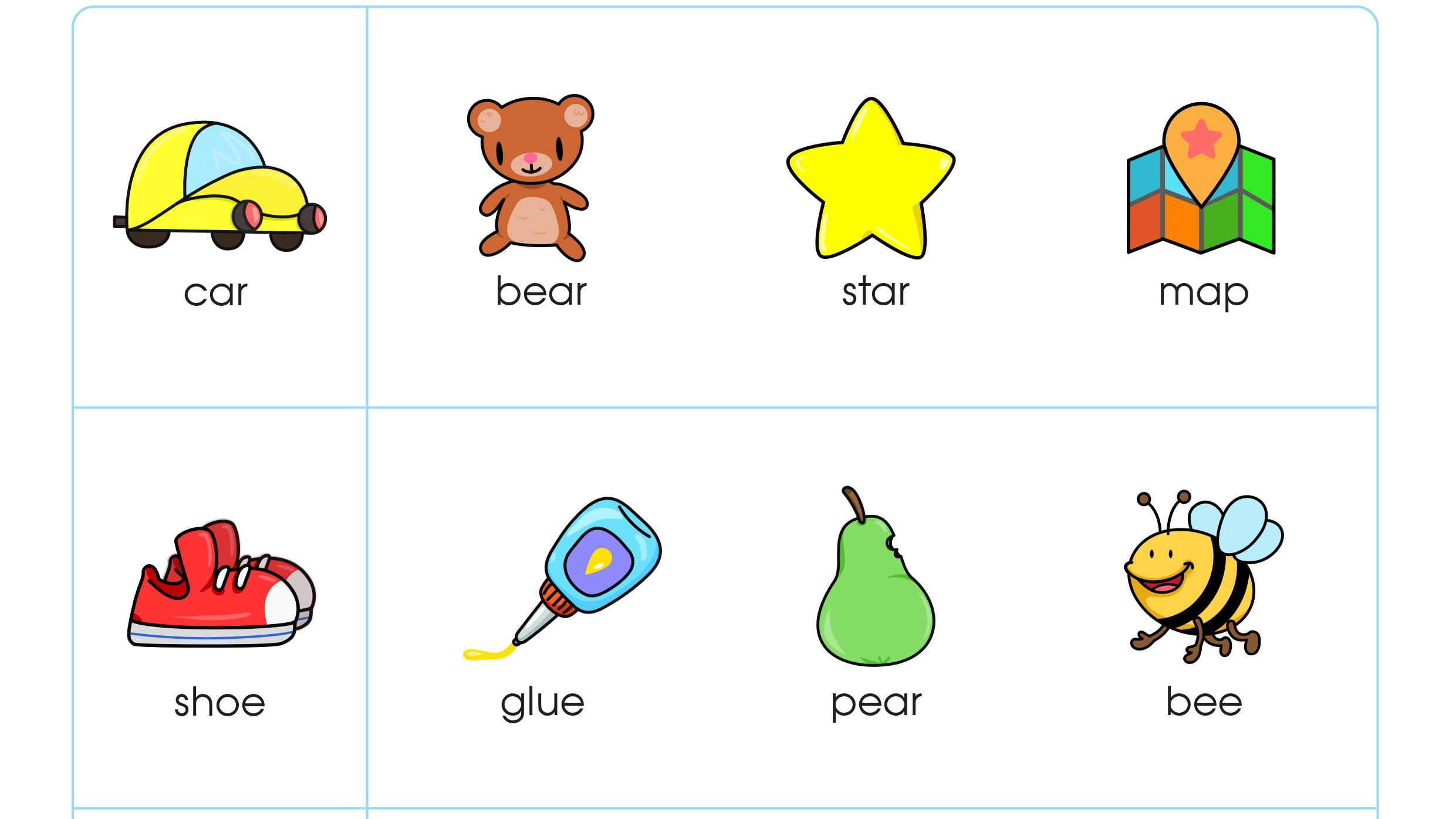Rhyming Words Worksheets for Ages 6-7
16 filtered results
-
From - To
Introducing our captivating collection of Rhyming Words worksheets, meticulously crafted for Ages 6-7! Dive into the enchanting world of sounds and syllables with these engaging worksheets designed to enhance your child's phonemic awareness and reading skills. Perfect for young learners, our worksheets are filled with fun activities and exercises tailored specifically for Ages 6-7, making it easier for them to grasp the concept of rhyming words. From matching games to fill-in-the-blanks, these worksheets provide a comprehensive approach to learning, ensuring a solid foundation in language arts. Unleash your child's creative potential and watch as they discover the joy of rhymes with our Rhyming Words worksheets!
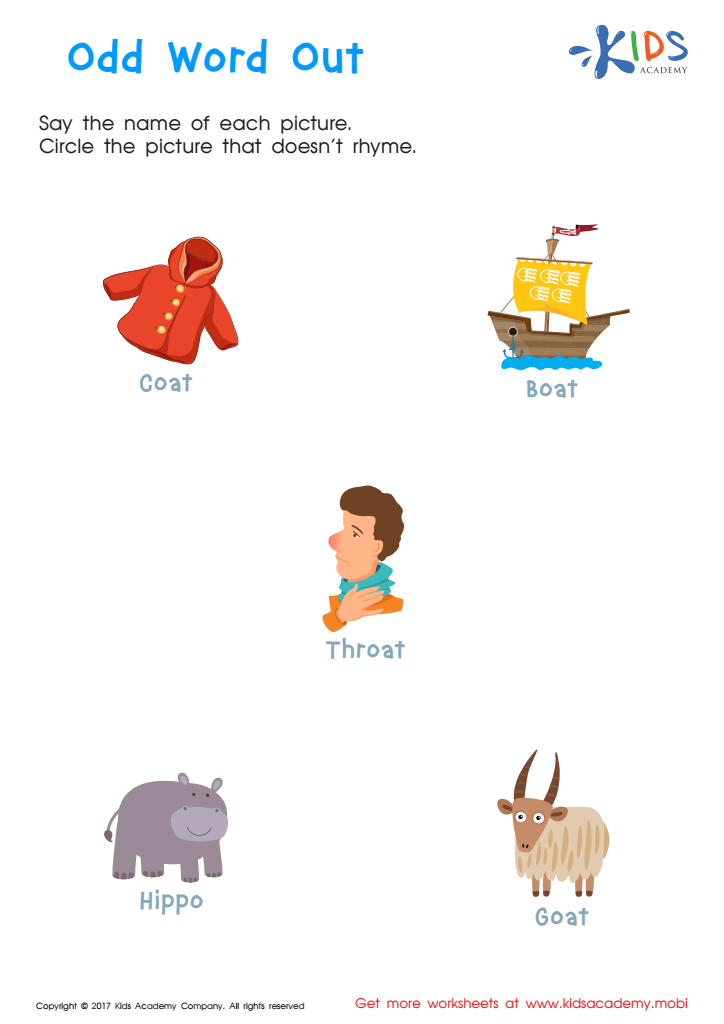

Odd Word Out Rhyming Worksheet
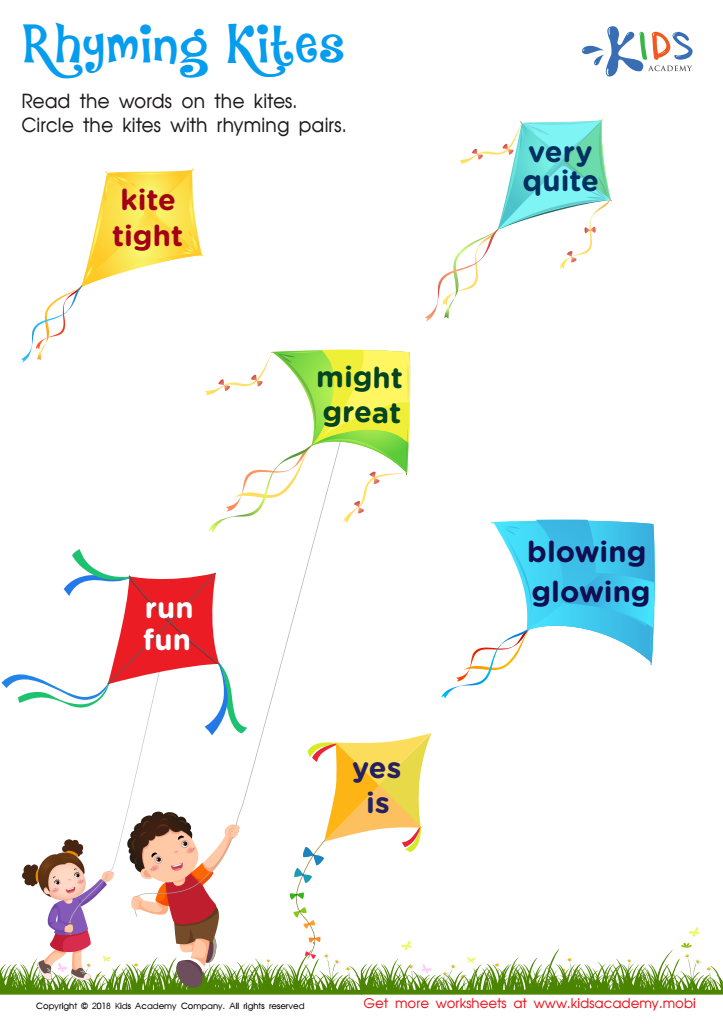

Rhyming Kites Worksheet
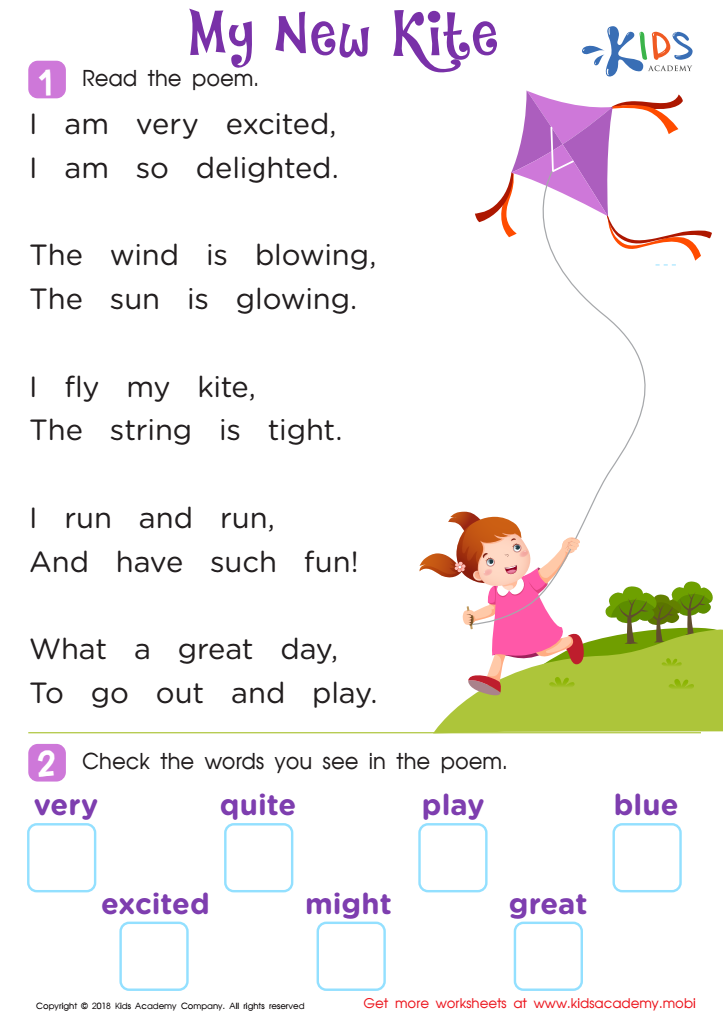

Poem: My New Kite Worksheet
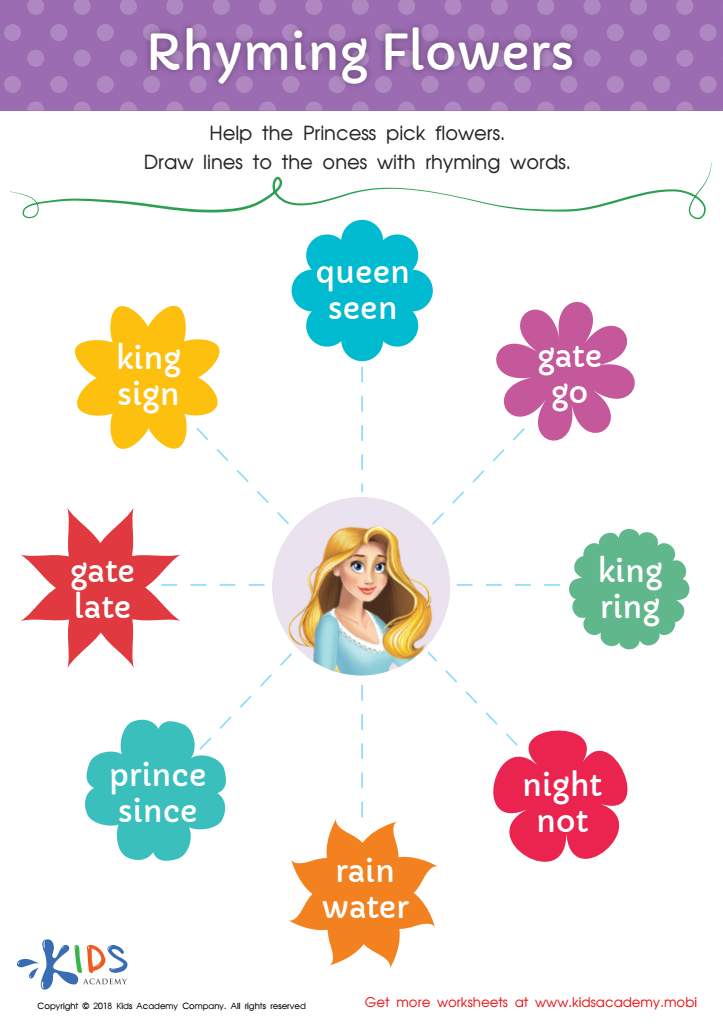

Rhyming Flowers Worksheet
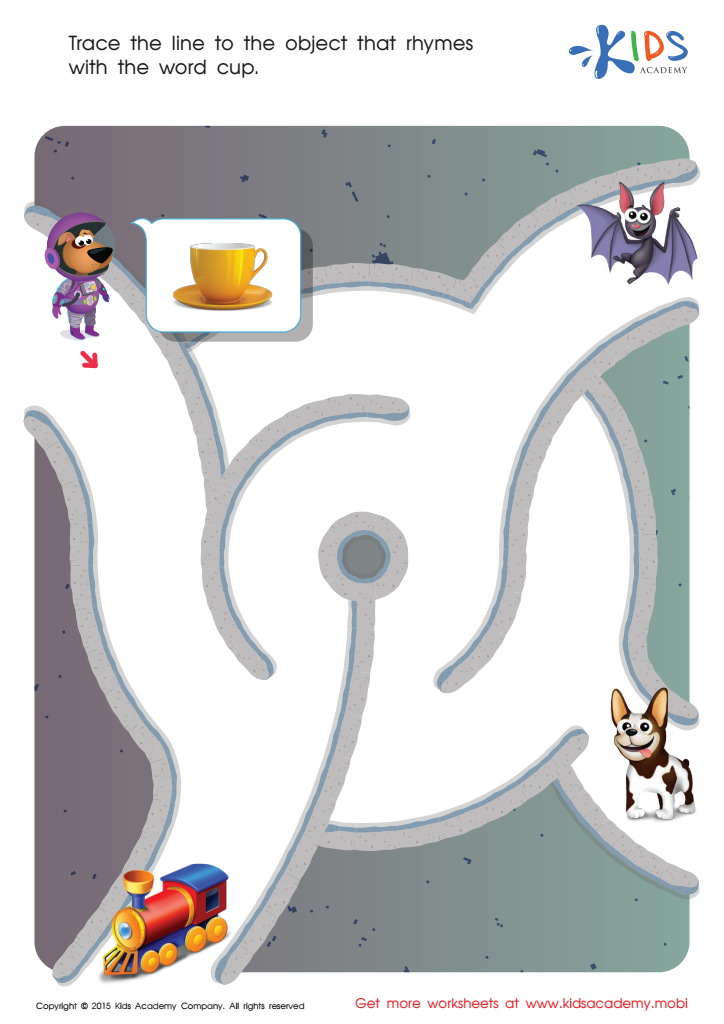

Cup Rhyming Words Worksheet


Rhyming Words Rhyming Worksheet
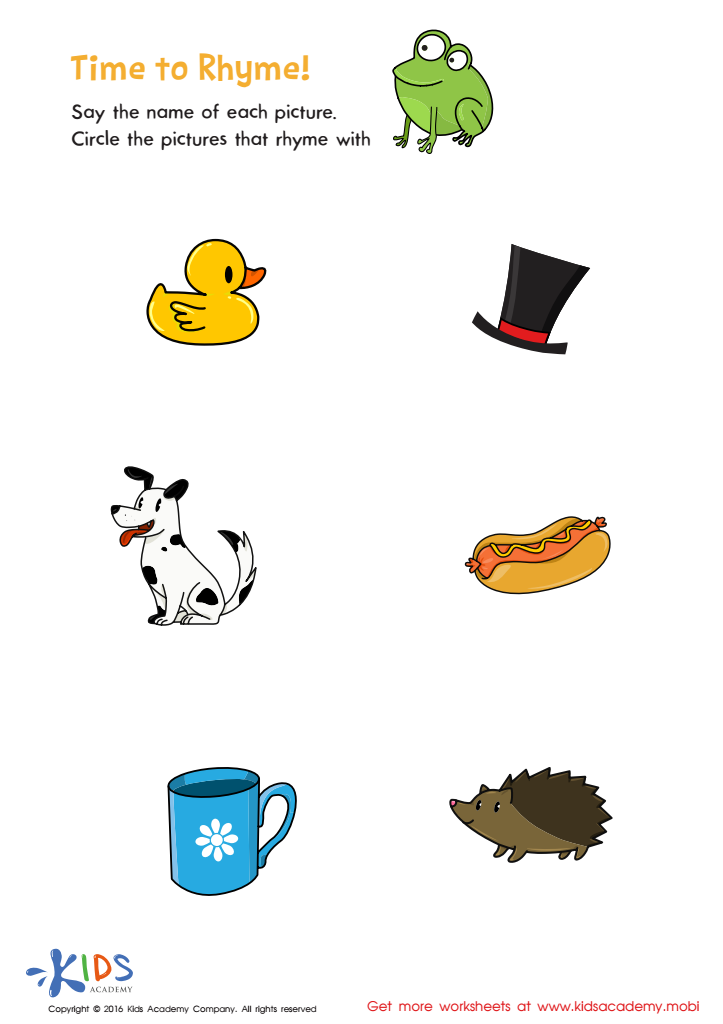

Rhyming Worksheet: Time to Rhyme Rhyming Worksheet


First Words: Picture Rhymes Worksheet
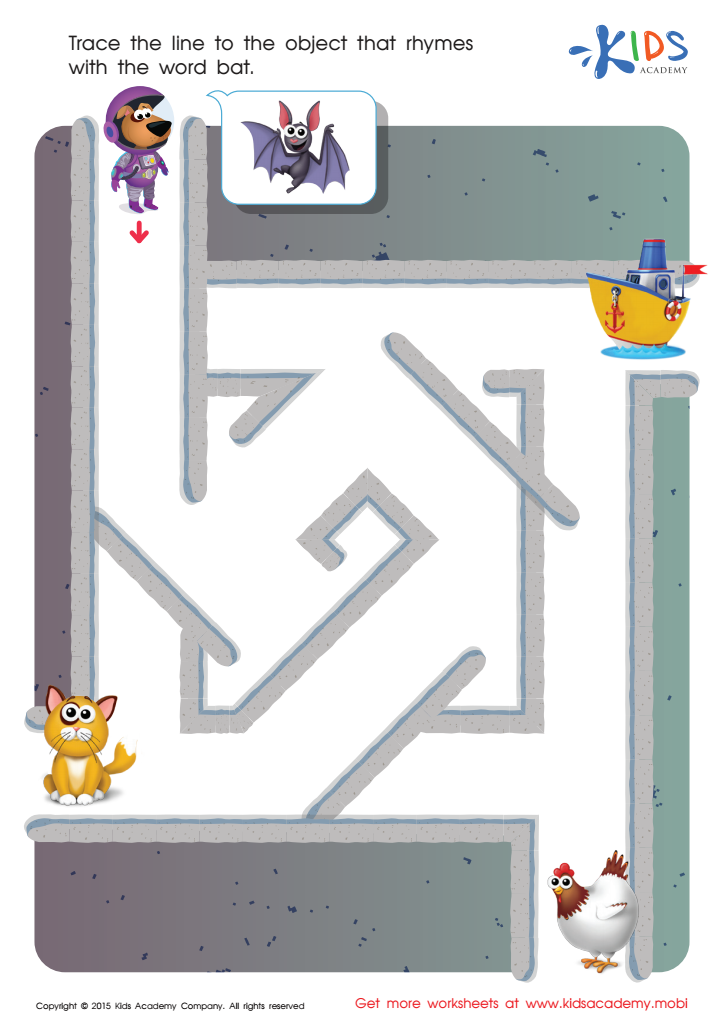

Bat Rhyming Words Worksheet
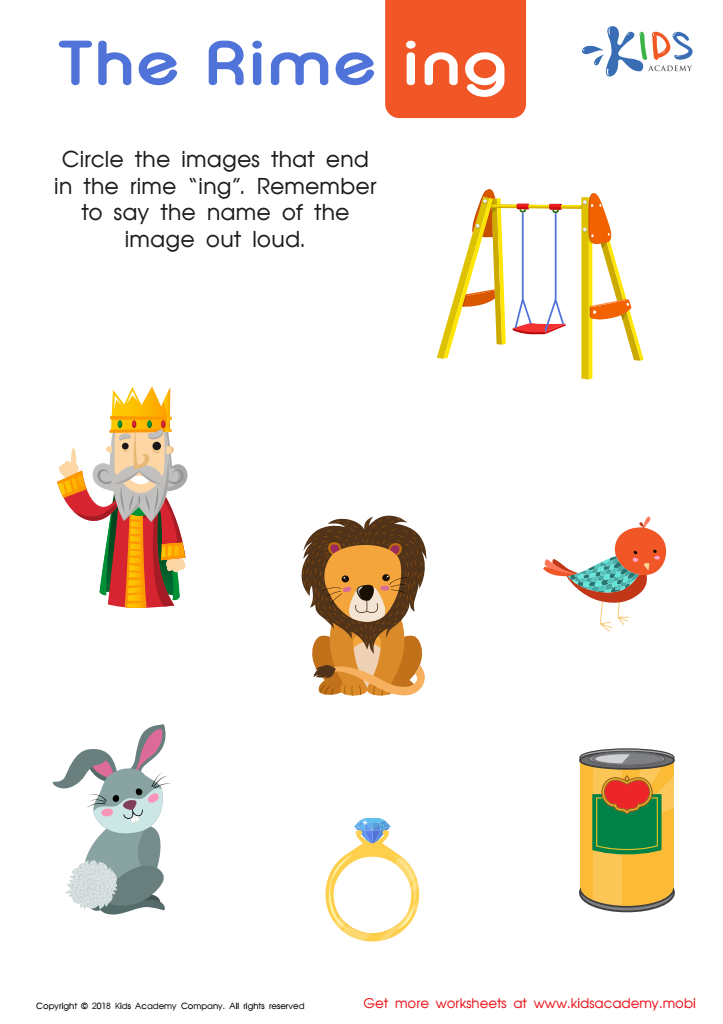

The Rime "ing" Worksheet
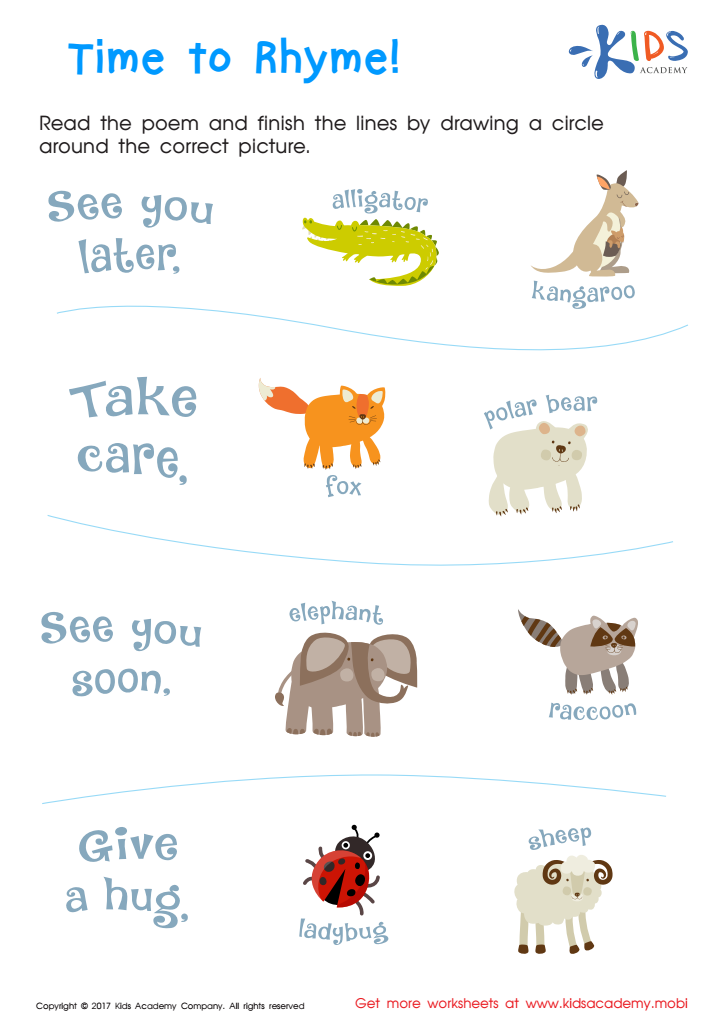

Time to Rhyme Rhyming Worksheet
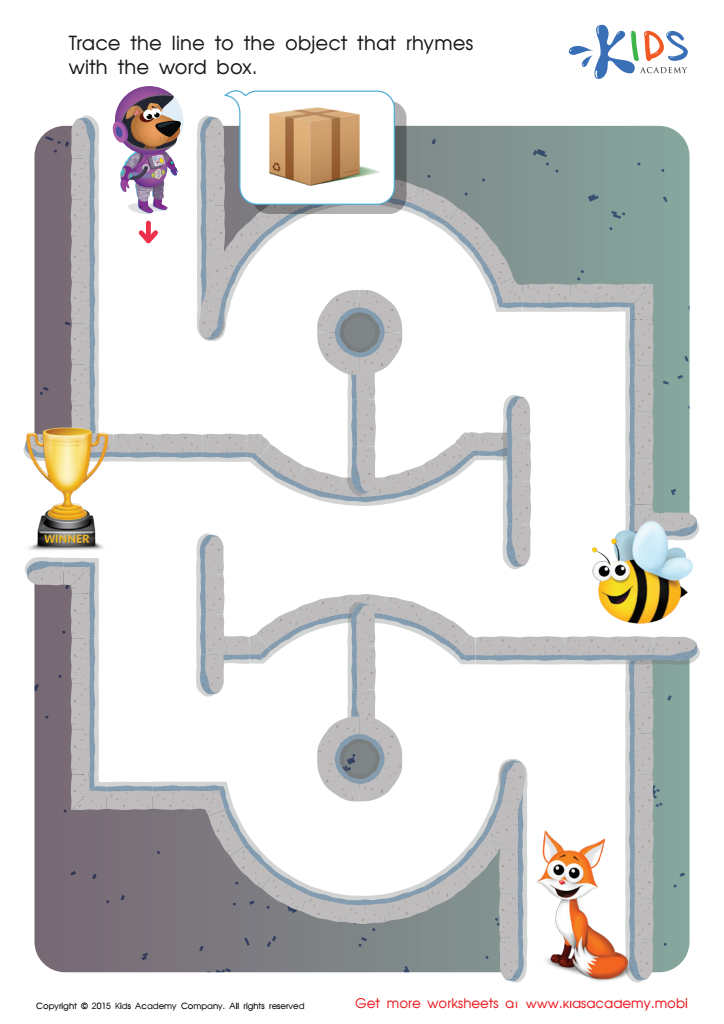

Box Rhyming Words Worksheet
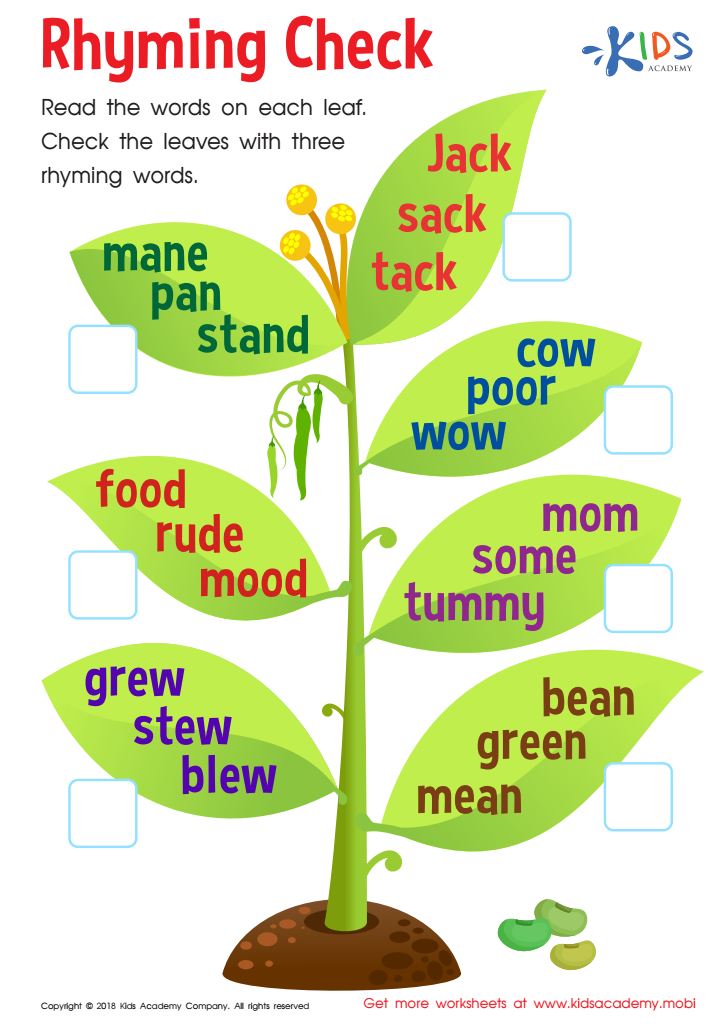

Rhyming Check Worksheet
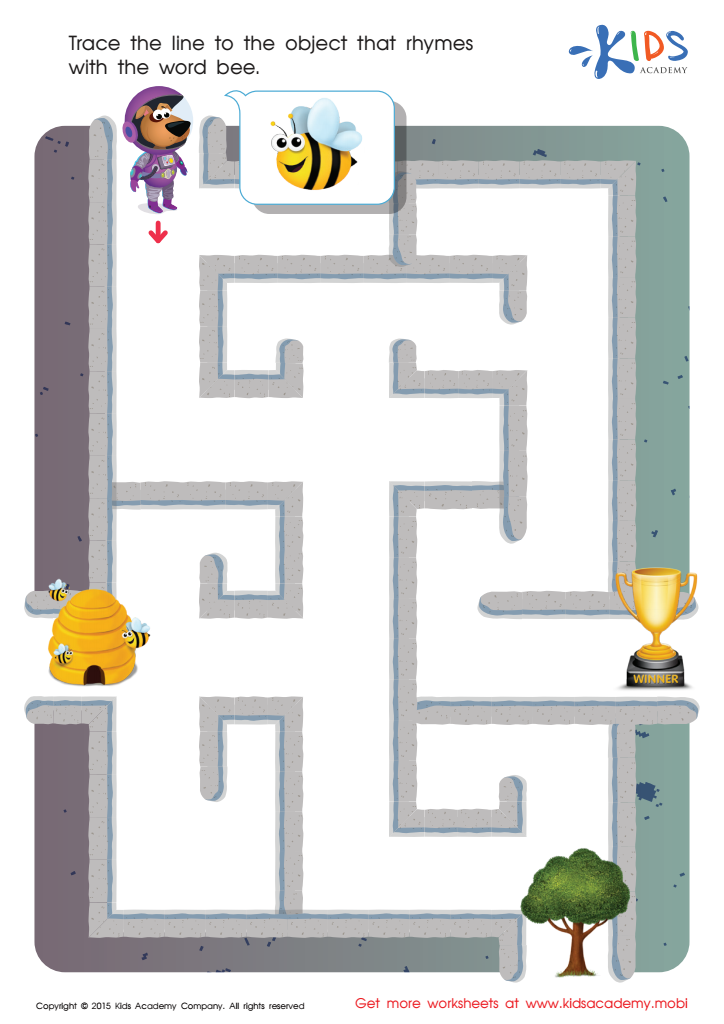

Bee Rhyming Words Worksheet
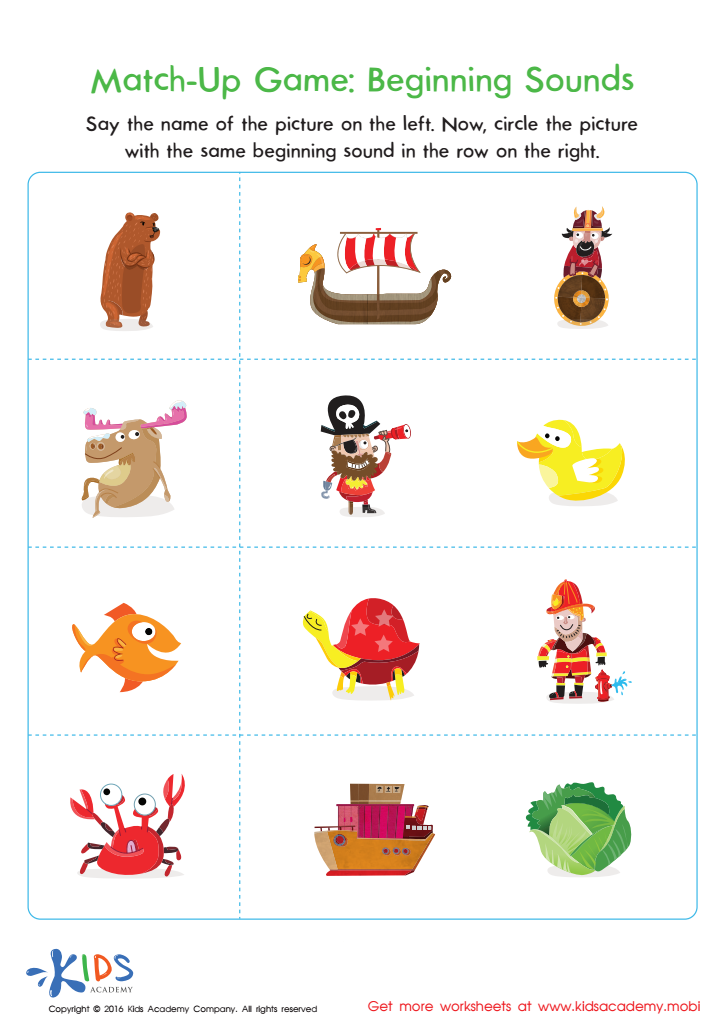

Match–Up Game: Beginning Sounds Worksheet
Rhyming Words worksheets, especially tailored for Ages 6-7, stand as a cornerstone in fostering language and literacy skills among young learners. At this pivotal age, children are just beginning to grasp the nuances of language, making it the ideal time to introduce them to the concept of rhyming. Worksheets focused on Rhyming Words for Ages 6-7 are not just beneficial; they are essential tools in the developmental toolkit of early education.
Why, you may ask, are these worksheets so invaluable? For starters, they enhance phonemic awareness—the ability to hear, identify, and manipulate phonemes, the smallest units of sound. Engaging with rhymes helps children recognize sound patterns, an essential skill for reading and spelling. Moreover, Rhyming Words worksheets nurture memory and cognitive development. Remembering rhymes and the patterns they follow boosts memory retention and encourages creative thinking.
Additionally, these worksheets make learning enjoyable. They transform the learning process into a fun and engaging activity, thereby increasing a child's love for reading and writing. By connecting sounds with patterns and meanings, Rhyming Words worksheets for Ages 6-7 lay a solid foundation for literacy, simultaneously stimulating imagination and fostering a lifelong love for language. Through rhyme, children learn not just about words and sounds, but about rhythm and flow—vital components of effective communication and expression.
 Assign to My Students
Assign to My Students





